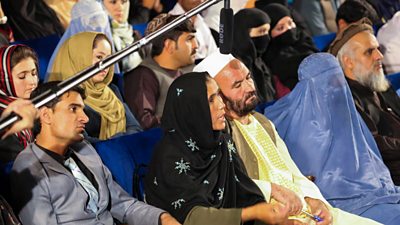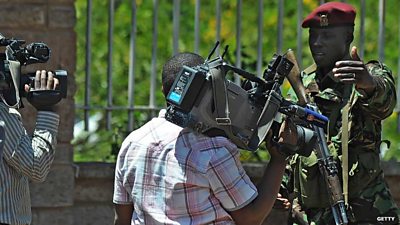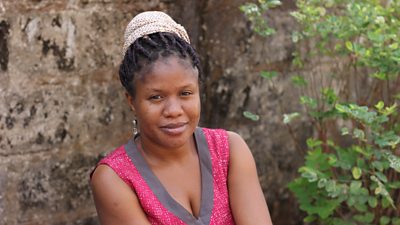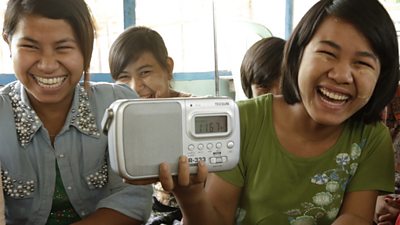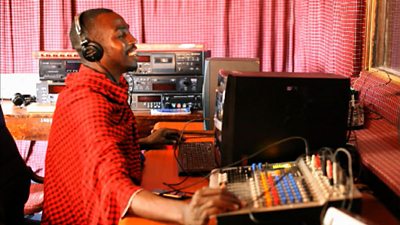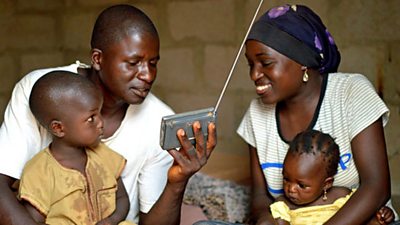It’s harder than ever for people to know where to turn for reliable, balanced information. Trusted media are essential in helping people to understand and address problems in their daily lives, to support effective, inclusive governance, and to hold those in positions of power to account.
Our work in radio, television, digital and other communication content ensures people have better access to accurate, credible and balanced information. Our work helps people understand their rights, and the responsibilities of those in power, and creates space for inclusive public discussion on issues of importance to people’s lives. And we enable people to meet and speak directly with their decision-makers, to make them answerable for their actions. We help support fair elections, challenge mis- and disinformation, and help people live together more peacefully.
Addressing conflict and bridging divides
We use mass media, digital and community outreach to help prevent and resolve conflict and build more peaceful societies. Our work provides trusted information, convenes inclusive discussion, helps dispel mis/disinformation, and uses stories and ideas to bridge divides, build tolerance and empathy, reduce the acceptance of violence and encourage a more peaceful negotiation of differences.
Our diverse programmes span the globe: from South Sudan and Libya to Afghanistan to Myanmar, and many places in between, our creative communications and support for media are contributing to fairer, more peaceful and more inclusive societies.
Reaching everyone
Drawing upon our audience insights and research, we develop new and creative ways to reach groups traditionally less engaged in politics – including women and young people, who are a particular focus.
And we believe in diversity and inclusion, ensuring women, people with disabilities, and those marginalised by race, ethnicity, class or caste are represented as presenters, experts and contributors in our programmes, to create more diverse content and ensure our governance programmes are relevant to everyone.
Accountability and participation
Read blogs on governance-

Local radio's impact on young Zambians’ participation in civic life
Our long-term work with radio stations has helped improve local accountability for the community, specifically young people - read our evaluation -
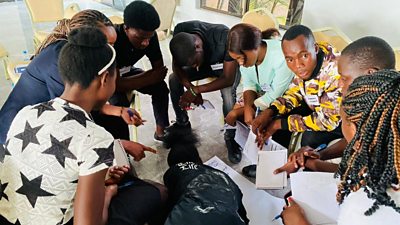
Everyday corruption: Understanding public perceptions and challenges
By gathering insights from both the general public and public officials, the research offers a comprehensive view of the challenges and opportunities in fostering a culture of transparency and accountability in Zambia. -
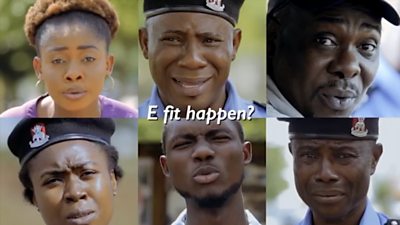
Police reform: how media is addressing security reform in Nigeria
Amid the End SARS protests and political unrest in many states in Nigeria, our creative team in Abuja worked to facilitate dialogue and accountability between Nigerians and their police force. -
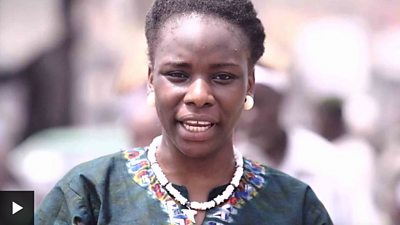
Mi-VotE: Improving participation in the 2019 Nigerian Elections
Dubbed ‘Mi-VotE’, our communication project aimed to improve inclusion and participation in the election cycle by using a variety of media to reach Nigerians across the country – particularly those who are often marginalised. -

Al Mirbad: an independent media outlet in southern Iraq
Al Mirbad is southern Iraq's steadfast public service broadcaster. Launched by Â鶹ԼÅÄ Media Action in 2005 after the fall of Saddam Hussein’s regime, it is now a household name providing news, investigative journalism, political comedy and social content to its ever growing audiences on radio and digital media. -
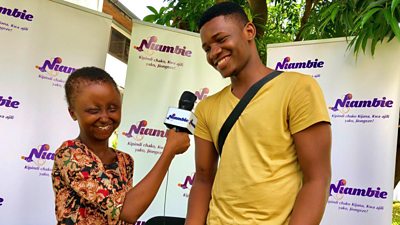
Informing and inspiring Tanzania’s young generation
Niambie (‘tell me’ in Kiswahili) is an interactive radio show and social media platform providing young Tanzanians with the information they need to take part in important decisions affecting their lives.
Addressing conflict and bridging divides
-
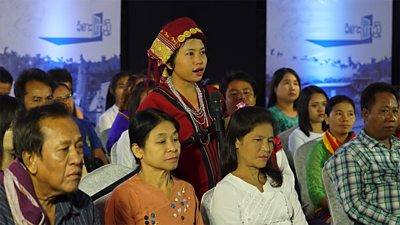
Khan Sar Kyi: a national discussion for understanding and peace
Khan Sar Kyi ('Feel it') aims to build a broad and inclusive public debate in Myanmar by showcasing diverse perspectives on identity and increasing audience understanding of the causes of, and potential solutions to, conflict. We give people the opportunity to share and understand their differences and similarities in a journey towards greater understanding and peaceful co-existence. -
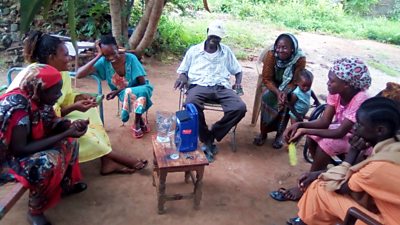
Encouraging non-violent conflict resolution in South Sudan
Â鶹ԼÅÄ Media Action is contributing towards peace-building in South Sudan by producing Life in Lulu, a long-running radio drama series which encourages listeners to resolve conflicts in their households and communities in non-violent ways. -
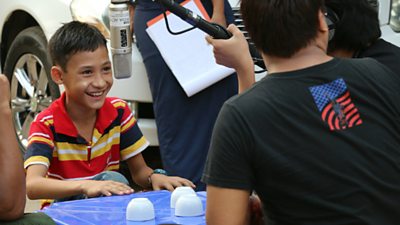
Celebrating 5 years of The Tea Cup Diaries
As our flagship peace-building radio drama, The Tea Cup Diaries, marks its fifth anniversary, learn how the show has helped bridge divides between diverse communities in Myanmar, and how it continues to support and entertain its loyal following during the COVID-19 pandemic. -
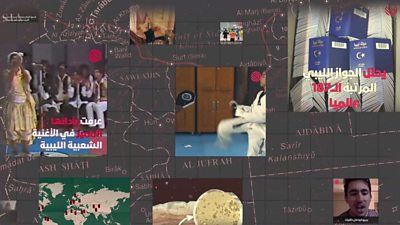
Balancing an unbalanced media scene in Libya
The majority of media outlets in Libya are polarised, and journalists may face arrest or kidnap for what they write. With El Kul, we work to provide balance in a very unbalanced media scene, over the years, our work has included journalist training and mentoring; however, the environment now is unpredictable – our team in North Africa talk about the importance of the project to bridge societal divides.
More about our governance work
Would you like to partner with us?-

Tackling fake news during elections
Rapidly increasing levels of access to social media had created an influential space for political discussion for the 2018 elections in Sierra Leone. We sought to increase knowledge around responsible use of social media, building media literacy and countering misinformation. -
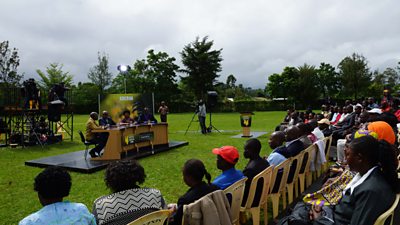
Doing debate differently: media and accountability
This paper discusses a number of ways in which media plays a part in increasing accountability. It draws on quantitative and qualitative data from Â鶹ԼÅÄ Media Action’s work in nine countries. -
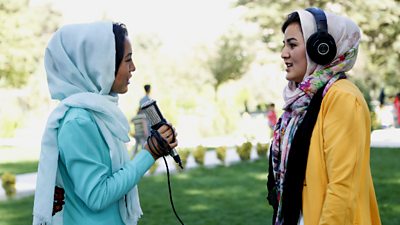
Leaving no one behind
Helping people understand their rights is embedded throughout our projects and programmes around the world. We challenge stigma, discrimination and negative social norms, ensuring those marginalised are given a voice and balanced, meaningful representation in media, both on and off camera.
